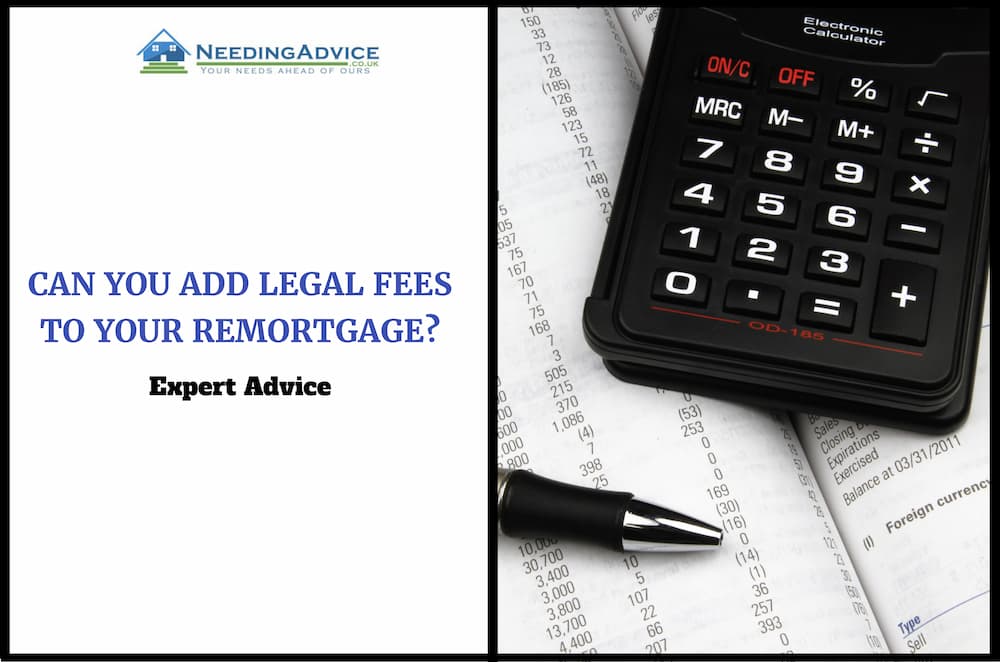If you want to take advantage of a more attractive mortgage deal or increase your borrowing against the security provided by your home, you might want to consider a remortgageRefinancing an existing mortgage with a new mortgage.. A remortgage simply replaces your existing mortgage with an alternative that typically offers more favorable terms and conditions, greater borrowing, or repayment terms over an extended period.
These might all be compelling reasons but, when deciding whether or not to remortgage, you will also need to take into account the cost of doing so and weigh these against any benefits you might enjoy.
The cost of remortgaging
The following are some of the costs you might expect to pay – both for leaving your current mortgage and for setting up the replacement remortgage:
Early repayment fees
- if your mortgage is still on a fixed-rate or tracker period, your current lender is almost certain to recover some of the lost earnings from a higher rate of interest by charging you an early repayment penalty;
- the charge is typically calculated as a percentage of the outstanding mortgage balance – and, according to an article in Which? magazine, updated in May 2020, may be significant;
Exit fee/administration charge
- you may also be charged a fee or administrative charge for closing your account although this is typically a small amount;
- as the Money Saving Expert explains, this may also be described as a DeedsLegal documents that prove ownership of a property. Release Fee – to cover the administrative cost of forwarding the title deeds of your home to your solicitor;
Remortgage arrangement fees
- your remortgage is effectively a new mortgage – replacing your current mortgage, of course – and there are similar fees to set up the remortgage just as you paid when setting up the original loan;
- the arrangement or product fee is typically in the region of £1,000, suggests the Which? article – a sum which you might anticipate by adding it to the total sum you aim to borrow by way of your remortgage.
Remortgage legal fees
Many remortgages are also likely to involve legal fees. Although the Home Owners’ Alliance (HOA) explains that if you are remortgaging with the same lender for a replacement deal, this is likely to be considered a “product transfer” and almost no legal work is involved.
In all other cases, you are likely to need to instruct a solicitor or conveyancer to take care of a certain amount of legal work – although the HOA mentions that some mortgage lenders offer a free legal package to cover this aspect of your remortgage.
What is involved in those legal services?
According to the HOA, the various conveyancing fees that might be involved include the conveyance itself, which might include:
Confirmation of your ID
- your proof of IDEvidence of a borrower's identity, such as a passport or dri... helps the solicitor or conveyancer protect against money laundering;
Details of your current mortgage
- your solicitor requests a “redemption statementA statement provided by the lender that shows the amount nee...” from your existing lender, showing the balance of the outstanding mortgage, together with any exit or early repayment charges;
Leasehold checks
- if you own the lease of your home – rather than its freehold – your solicitor needs to check the remaining period of the lease and whether it complies with the conditions set by your remortgage lender;
Property searches
- enquiries made by your solicitor to various authorities about plans or issues that might affect the mortgaged property;
Valuation
- the lender will require an up-to-date valuation of the property used to secure your remortgage;
Bankruptcy check
- the lender will expect your solicitor to confirm that you have never been declared bankrupt;
Priority searches
- priority searches are typically made of the Land Registry and elsewhere immediately before completionThe point at which a property purchase is finalized and owne... of the remortgage contract to ensure that nothing has changed since the remortgage process commenced;
Completion
- when your solicitor receives the remortgage funds from your new lender, he will arrange for the old mortgage to be paid off, together with any fees charged, and send the remaining funds to you.
Can you add legal fees to your mortgage?
In the United Kingdom, legal fees, also known as conveyancing fees, are not typically included in the mortgage and must be paid upfront by the buyer. These fees cover the costs associated with searching for and checking title deeds, carrying out property searches, preparing contracts and legal documents, advising the buyer on the legal aspects of the purchase, and liaising with the seller’s solicitor.
The exact amount of legal fees varies based on the complexity of the property purchase and the experience of the chosen solicitor. Generally, legal fees range between £1,000 and £3,000.
To save on legal fees, consider shopping around for competitive quotes from multiple solicitors, communicating your budget upfront, completing as much paperwork independently as possible, and inquiring about available discounts, such as those offered to first-time buyers or for specific property types.
While legal fees cannot be directly added to the mortgage, alternative financing options may be available, such as personal loans or credit cards. However, it’s crucial to compare rates and terms thoroughly before taking on any additional debt.
Here’s a summary table of legal fees and their inclusion in mortgages in the UK:
| Type of Fee | Can Be Added to Mortgage |
| Mortgage Arrangement Fee | Yes |
| Solicitors’ Fees | No |
| Survey Fees | No |
| Land Registry Fees | No |
Can you add solicitors fees to a mortgage?
No, you cannot add solicitors’ fees, also known as conveyancing fees, to a mortgage in the UK. These fees are considered personal expenses and must be paid separately by the buyer. The cost of conveyancing typically ranges between £1,000 and £3,000, depending on the complexity of the property purchase and the experience of the solicitor.
Here’s a breakdown of the different types of legal fees involved in a property purchase in the UK:
-
Searches and Checks: This includes verifying title deeds, property searches, and checking for any local or environmental restrictions that might affect the property.
-
Contract Preparation: Your solicitor will draft and review the legal contracts involved in the purchase, ensuring they protect your interests and comply with all legal requirements.
-
Legal Advice: Your solicitor will provide you with guidance and advice on various legal aspects of the purchase, including property taxes, stamp dutyA tax paid by the buyer when purchasing a property., and any potential risks or liabilities.
-
Communication and Liaison: Your solicitor will act as your intermediary, communicating with the seller’s solicitor, the estate agent, and other parties involved in the transaction.
Since solicitors’ fees are not part of the mortgage, you’ll need to cover them out of your own savings or from the proceeds of selling your existing property if you’re a homeowner. However, there are a few strategies you can employ to minimize these costs:
-
Compare Solicitors: Obtain quotes from multiple solicitors to compare their fees and services.
-
Communicate Budget: Clearly discuss your budget with your chosen solicitor to ensure they tailor their services accordingly.
-
DIY Tasks: Complete as much paperwork yourself as possible, such as gathering property documents and filling out forms, to reduce the solicitor’s workload.
-
Inquire About Discounts: Check if your solicitor offers discounts for first-time buyers, specific property types, or referrals.
While adding legal fees to the mortgage is not an option, you can explore alternative financing methods, such as personal loans or credit cards. However, thoroughly research and compare interest rates and terms before committing to any additional debt.
Inclusion of the legal fees in your remortgage
Your remortgage legal fees need to be paid upfront and are incurred before completion of the remortgage contract – so, strictly speaking, it is not possible to include these costs in your remortgage.
If you have anticipated the likely cost of your remortgage legal fees, of course, you might simply include that amount in the sum you apply to borrow through your remortgage.
If your remortgage lender has offered a free conveyancing service package, you may disregard any need to anticipate the cost, which does not need to be incorporated into the amount you borrow.
Finally, if you are paying your remortgage legal fees yourself, then you are free to instruct conveyancers of your choice and do not need to rely on those chosen by your lender.
Speak to a mortgage broker for further help and advice on this matter.
FAQs
Can you add legal fees to your remortgage?
Yes, but only if you pay them yourself. If you use a conveyancer, they should be included in the total amount you borrow.
How much can I add to my remortgage?
You can add whatever you like. The maximum amount you can add is £5,000 per year. This includes all legal fees such as stamp duty, conveyancing fees, etc. If you are interested in adding an additional amount to your remortgage then you can contact a broker who can connect you with a suitable mortgage lender.
What happens when I add more than what I borrowed?
The extra money goes towards interest payments. It cannot be withdrawn until the end of the monthly repayment.
Doesn’t it make sense to add the legal fees to the loan amount?
No. Legal fees are not part of the loan amount. They are an additional expense. So, if you want to borrow £100k and pay £10k in legal fees, then you would take out a £90k loan. You could also borrow £100k and spend £1k on legal fees. In both cases, the legal fees are just another expense.
What mortgage fees will you pay?
Most lenders charge a fee for their services. However, some lenders offer a free conveyancing service. These lenders will usually ask you to complete a questionnaire about your home and property. Once you’ve completed the form, the lender will provide you with a quote for the work involved.
Do I need to pay a fee for using a mortgage broker?
Some brokers charge a fee for their service. Others don’t. Some lenders charge a fee for using their own brokers. But most lenders allow you to choose your own broker or agent.
Will I get a better deal if I use a mortgage broker?
It depends on how good your current mortgage broker is. Brokers often receive commissions from lenders for arranging mortgages. So, the best way to find out whether you’ll get a better deal is to compare quotes from different brokers.
Should I use a mortgage broker to arrange my remortgage?
It’s up to you. Mortgage brokers are experts at finding the right deals for their clients. And they’re used to working with people looking to remortgage.
Which solicitor should I use for a remortgage?
The good news is that there are mortgage lenders that provide free legal packages in their remortgage deals which also include solicitor fees. But the problem is this is not always free, it can end up costing you more amount in the form of mortgage repayments or interest rates. It is always better to contact for financial advice before starting your mortgage application.
Can you add an arrangement fee to the mortgage?
Yes, however, you must agree to pay the fee upfront. Otherwise, the bank may reject the application.
Is it possible to add an arrangement fee to my remortgage application?
If you are applying for a new mortgage, then yes. However, if you have already taken out a mortgage, then no.
How much do I need to save for a deposit?
This varies depending on where you live. For example, London has higher house prices than other parts of the UK. Therefore, you will need to save more for a deposit in London.







Leave A Comment